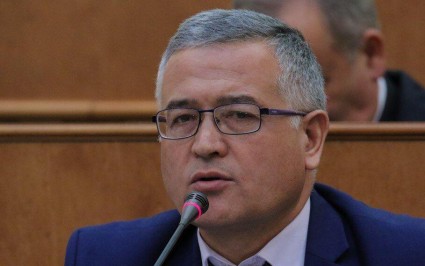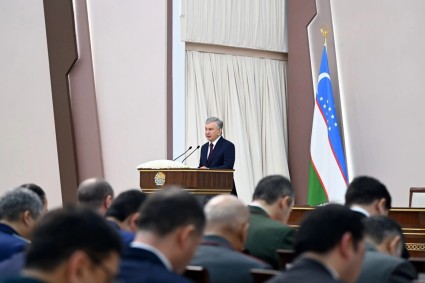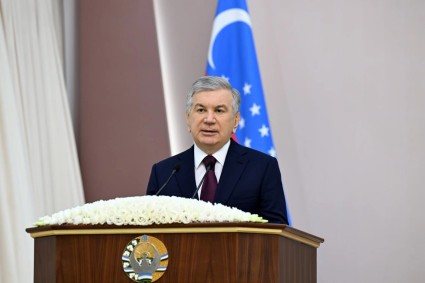The Government of Uzbekistan and the UN Office in the country have launched a coordinated UN/EU/the U.S. action to support women and children returning from conflict zones, with financial support from the European Union and the U.S. Department of State. This is said in the statement of the parties circulated on May 27.
Since 2019, Uzbekistan has conducted Mehr (transl. Kindness) five operations bring back women and children from Syria, Iraq and Afghanistan. In total, 531 people were brought back from the conflict zones to the country.
Coordinated action will provide technical and financial resources to support the reintegration of repatriated people into society. “This approach is based on recognizing the status of children as victims and the need to protect their personal interests through community-based reintegration programs for children and women that are gender sensitive,” the statement said.
The State Department-supported program is focused on Uzbekistan, while the EU-supported program is sub-regional and covers Kazakhstan, Kyrgyzstan, Tajikistan and Uzbekistan.
Assistance will be provided under the UN Global Framework for Support to Member States in relation to persons returned from Syria and Iraq. The program covers two components: the first is responsible for both the protection and humanitarian needs of repatriated persons (led by UNICEF), and the second component provides security and accountability support for crimes allegedly committed by some of the returnees (led by the UN Counter-Terrorism Office).
“Today's meeting is dedicated to the beginning of large-scale joint efforts. And I am sure that it will serve as a kind of starting point in uniting our efforts in the reintegration of children and women who returned to their homeland, and in preventing their re-radicalization,” said the Deputy Prime Minister Behzod Musayev.
“By providing reliable technical assistance and building human capacity, these actions will contribute to the realization of human rights, the promotion of democracy and the strengthening of the rule of law. The reintegration of returning children and families will contribute to the empowerment of vulnerable individuals and the general public, strengthening peace and stability by increasing their potential for wider socio-economic integration, poverty reduction and social exclusion,” said the EU Special Representative for Central Asia Peter Burian.
“The United States welcomes Uzbekistan's efforts to repatriate and reintegrate its citizens from conflict zones, including Iraq and Syria. Few countries have been as active in these efforts as Uzbekistan,” said the U.S. Ambassador to Uzbekistan Daniel Rosenblum.
“UNICEF continues to work with Central Asian governments to apply a child rights-based approach to the reintegration of children affected by armed conflict,” said Afshan Khan, UNICEF Regional Director for Europe and Central Asia. “We are encouraged by how many children have been reunited with their families, and we remain committed to partnering with countries to ensure that every child is protected from discrimination and is able to recover from their experiences.”
According to the UN Country Office, Uzbekistan and Kazakhstan account for the vast majority of repatriations that have returned about 900 people, including more than 600 children. At the end of April 2019, Tajikistan conducted a one-time operation to return 84 children from Iraq to their homeland. In March 2021, after a long preparation, Kyrgyzstan returned 79 unaccompanied children from Iraq.
The repatriated are family members of those people who went to Syria and Iraq to join ISIS and other terrorist groups. “While some family members joined them voluntarily, many others were forced, manipulated or forced to follow them. Moreover, thousands of children were born in the conflicts in Syria and Iraq from foreign parents,” the statement says.
“Although many foreign terrorist fighters were killed in the fighting, a large number of people, especially women and children, escaped the fighting and were transferred to camps,” the report said.
Currently, according to the UN, 68 thousand people are in the camps of Al-Hol and Al-Roj in northeastern Syria. Approximately 10,000 people from more than 50 countries are “third country nationals” other than Iraqis and non-Syrians. 99% of them are women and children.
“The situation in the camps is unstable and living conditions are poor, especially in Al-Hol and Al-Roj camps, and prevailing insecurity and violence exacerbate the vulnerability of the most-at-risk groups in the camps. In addition to many cases in Syria and Iraq, hundreds of women and children are in custody in Afghanistan,” the report said.














